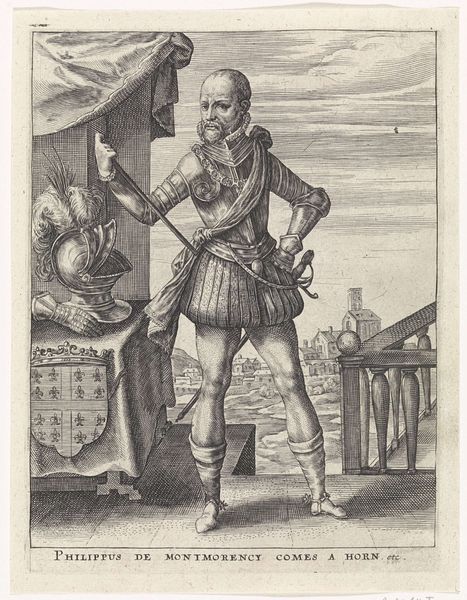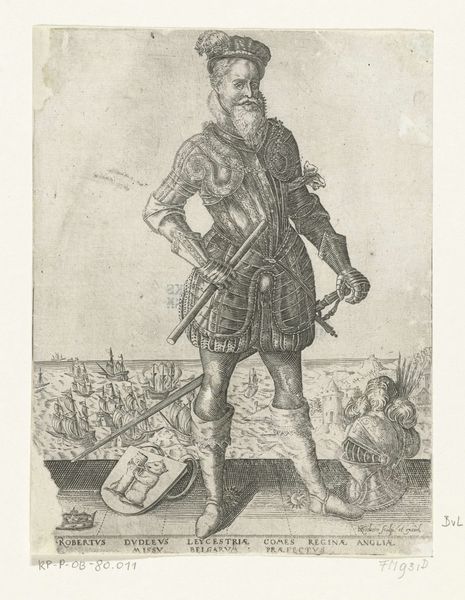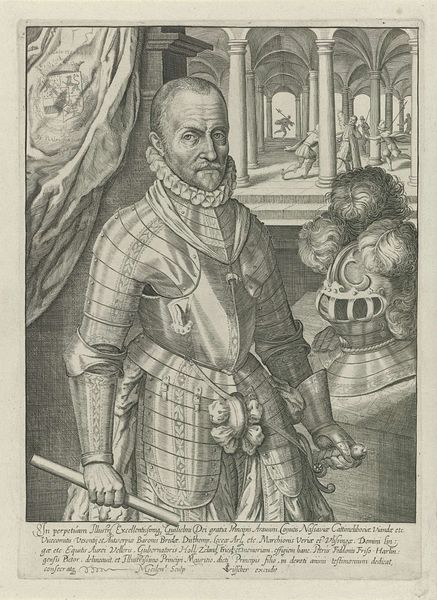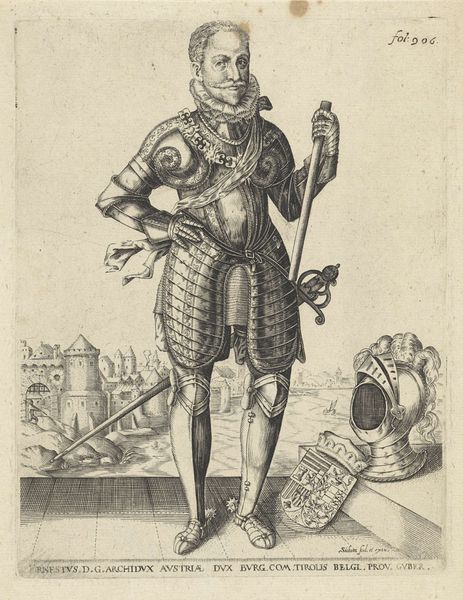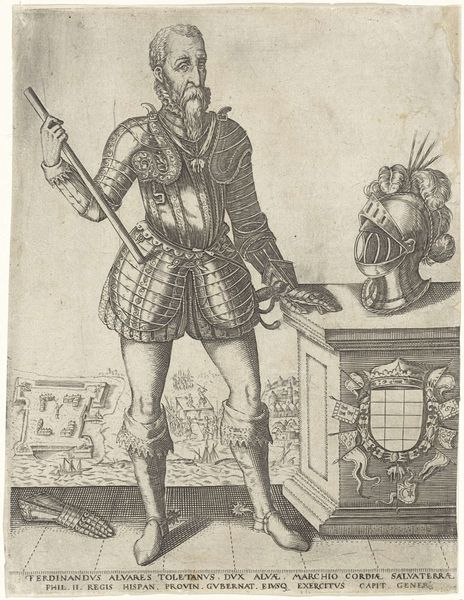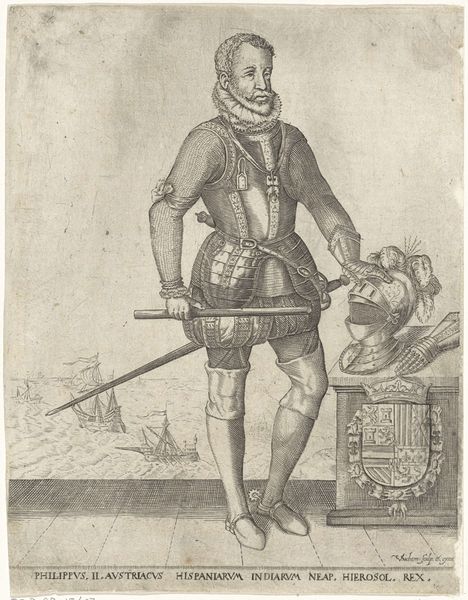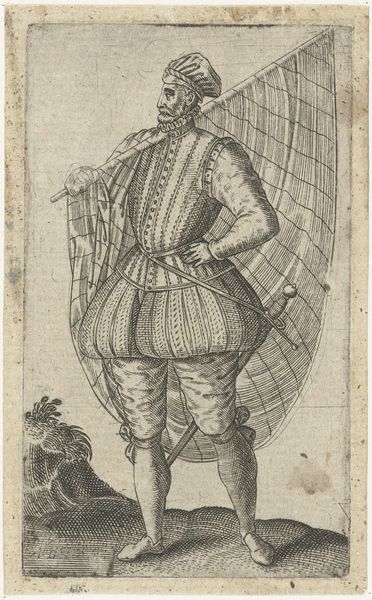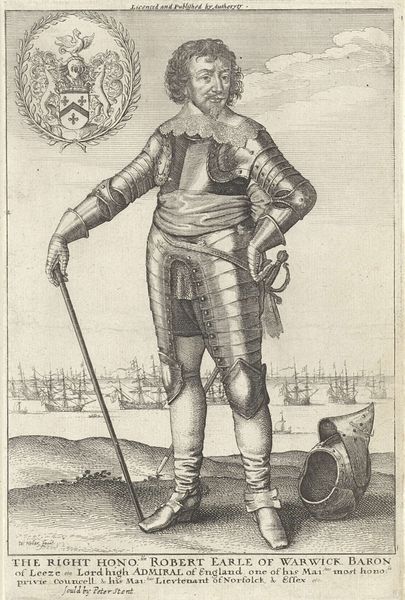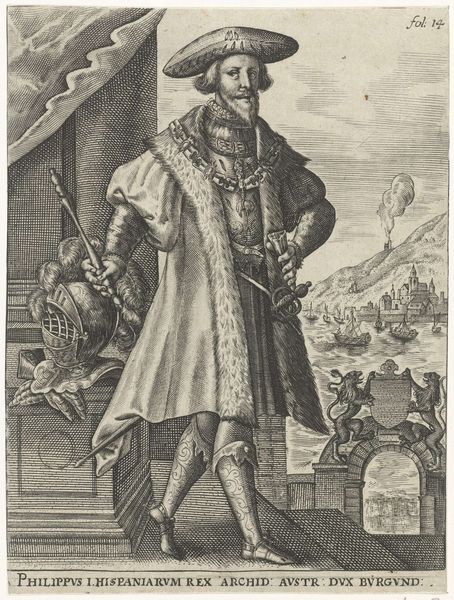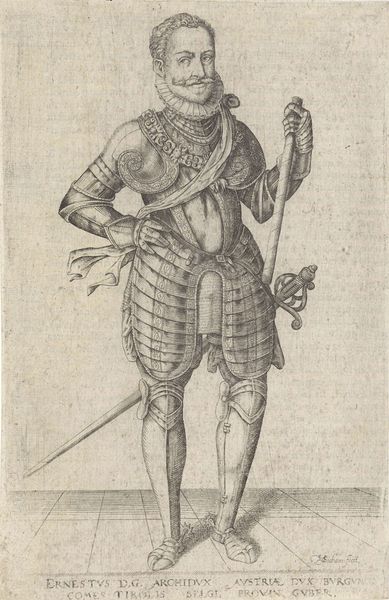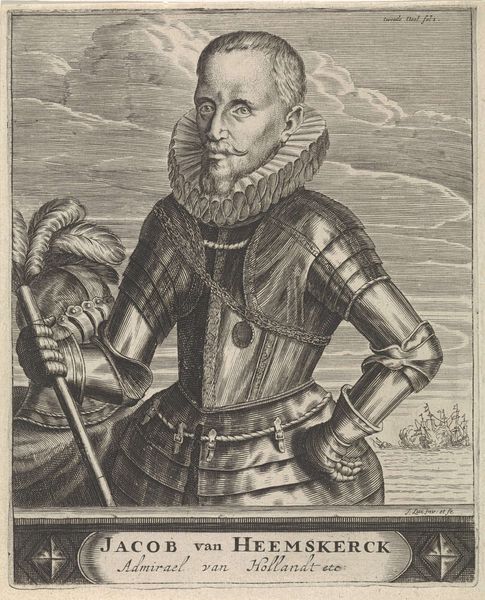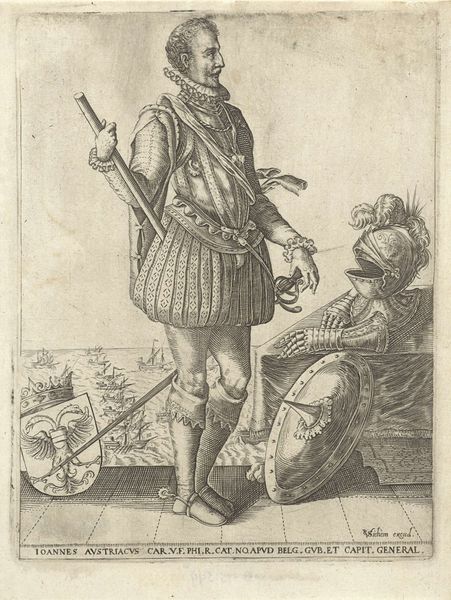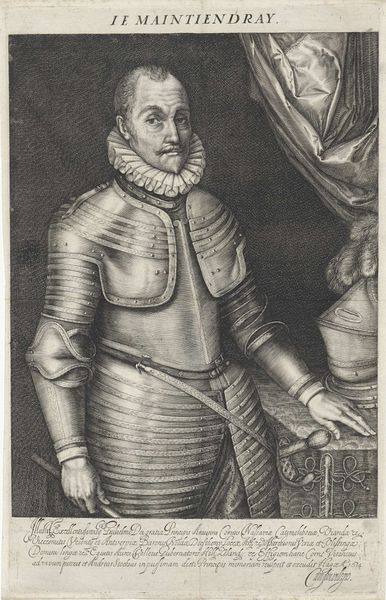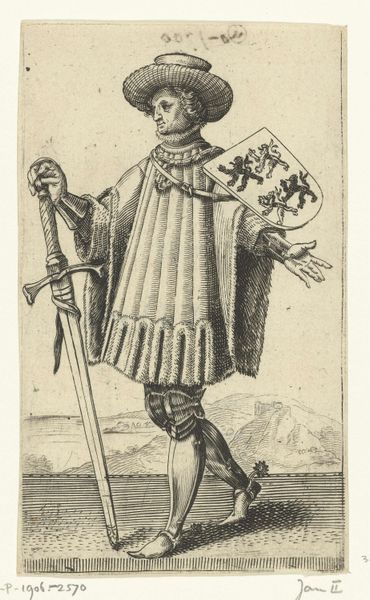
print, engraving
#
portrait
# print
#
old engraving style
#
mannerism
#
figuration
#
line
#
history-painting
#
northern-renaissance
#
engraving
#
realism
Dimensions: height 200 mm, width 147 mm
Copyright: Rijks Museum: Open Domain
This is Simon van de Passe’s print of Lamoraal, Count of Egmont, made in the early 17th century. It's an engraving, meaning the image was incised into a metal plate, probably copper. The process begins with covering a metal plate with a waxy, acid-resistant coating. The artist then scratches away the coating with a sharp tool, exposing the metal underneath. When the plate is dipped in acid, the acid bites into the exposed lines, creating grooves. The deeper the grooves, the more ink they hold, and the darker they appear in the final print. The sharp lines of the engraving lend themselves well to capturing the Count’s status; look at the details of his elaborate costume, the crisp rendering of his armor, and the carefully delineated background scene. These details speak to the social and political context in which the work was made; printmaking allowed for the widespread dissemination of images, playing a crucial role in shaping public perception of important figures like Egmont, who was executed for treason. The print is not just a portrait, it's a carefully crafted statement about power, rebellion, and the rapidly changing world of early modern Europe.
Comments
No comments
Be the first to comment and join the conversation on the ultimate creative platform.
